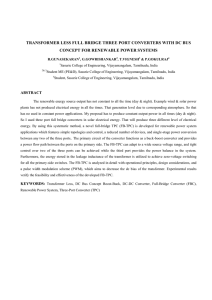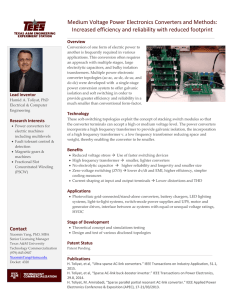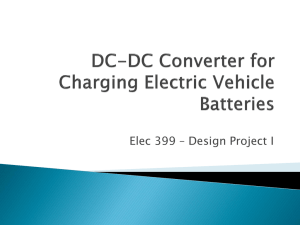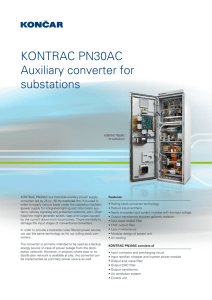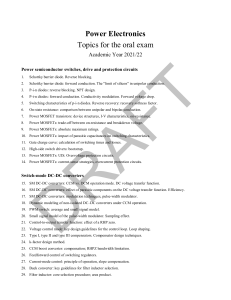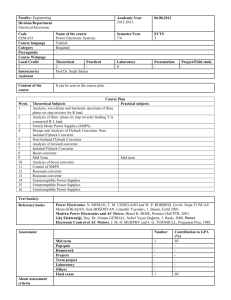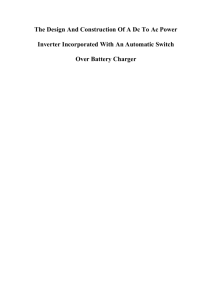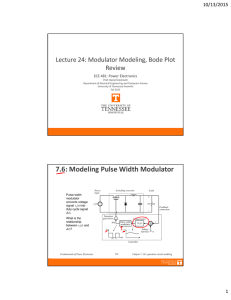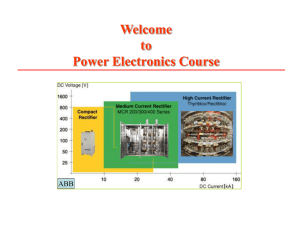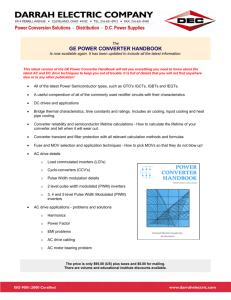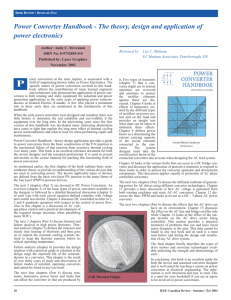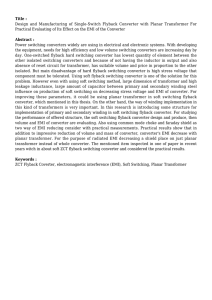Active Switch Stress Active Switch Utilization 10/2/2015 1
advertisement
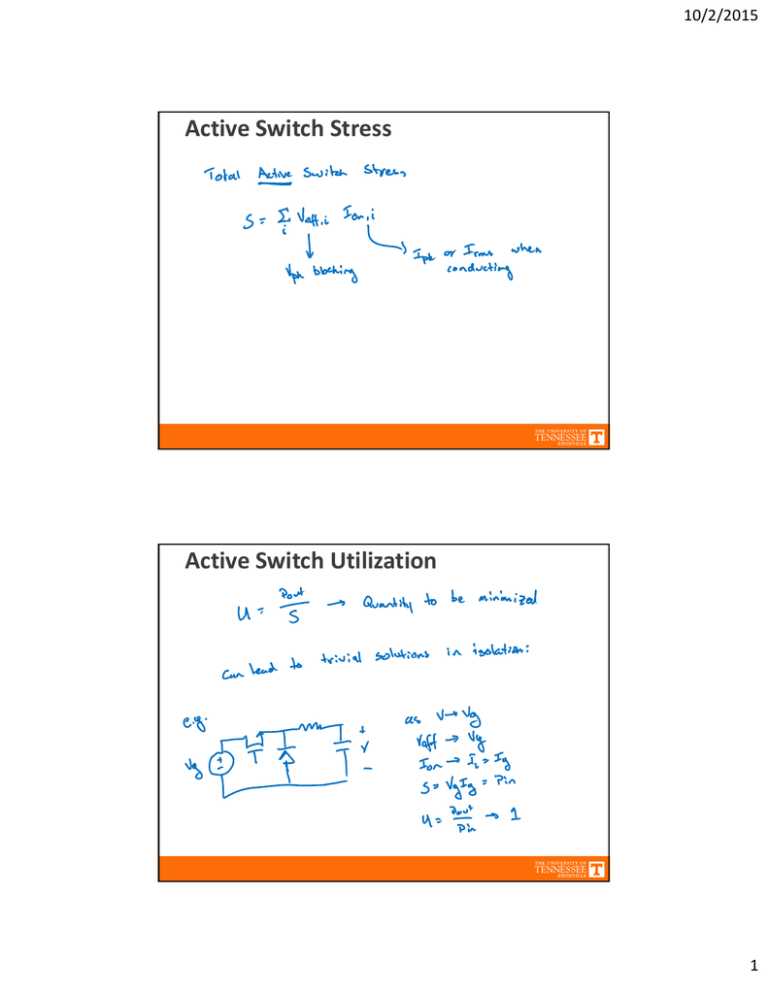
10/2/2015 Active Switch Stress Active Switch Utilization 1 10/2/2015 Semiconductor Proportional Cost Switch Utilization Table 2 10/2/2015 Flyback Application: iPad Charger http://www.righto.com/2014/05/a‐look‐inside‐ipad‐chargers‐pricey.html Flyback Off‐Line Charger Application Circuit http://www.dialog‐semiconductor.com/sites/default/files/iw1691‐datasheet.pdf 3 10/2/2015 Converter Design • No definitive way to determine best converter topology for a given application • Performance in power electronics depends heavily on details of implementation − Circuit layout − Gate driver design − Cooling system − Materials • Switch stress/utilization give some direction on candidate topologies − Active switches often dominate loss and cost of converter Parameterized Design • To design converter independent of device implementation, consider voltage and current stresses of all elements • In transformer isolated converters, the turns ratio is a degree of freedom for the design • Use design equations in e.g. Excel or Matlab to examine effects of design on resulting stresses 4 10/2/2015 Spreadsheet Design Example Forward Converter in CCM 5 10/2/2015 Flyback Converter in CCM Forward Converter Analysis 6 10/2/2015 Forward Converter DCM Bound Forward Converter Stress 7 10/2/2015 Spreadsheet Design Results Design Comparison 8 10/2/2015 Converter Current Stresses Secondary Device Stresses 9 10/2/2015 Chapter 6: Summary • Transformer‐based converters often useful when extreme conversion ratios or galvanic isolation are required • Isolated converters can be analyzed using conventional approaches, first replacing transformer by ideal transformer with magnetizing inductance • Must ensure transformer volt‐second balance, even in converters where it is not used as an energy storage element • Selecting the best topology for a given application is an imprecise science, but active switch stress and utilization are figures‐of‐merit that give some insight • Full comparison requires detailed analysis of candidate topologies 10
